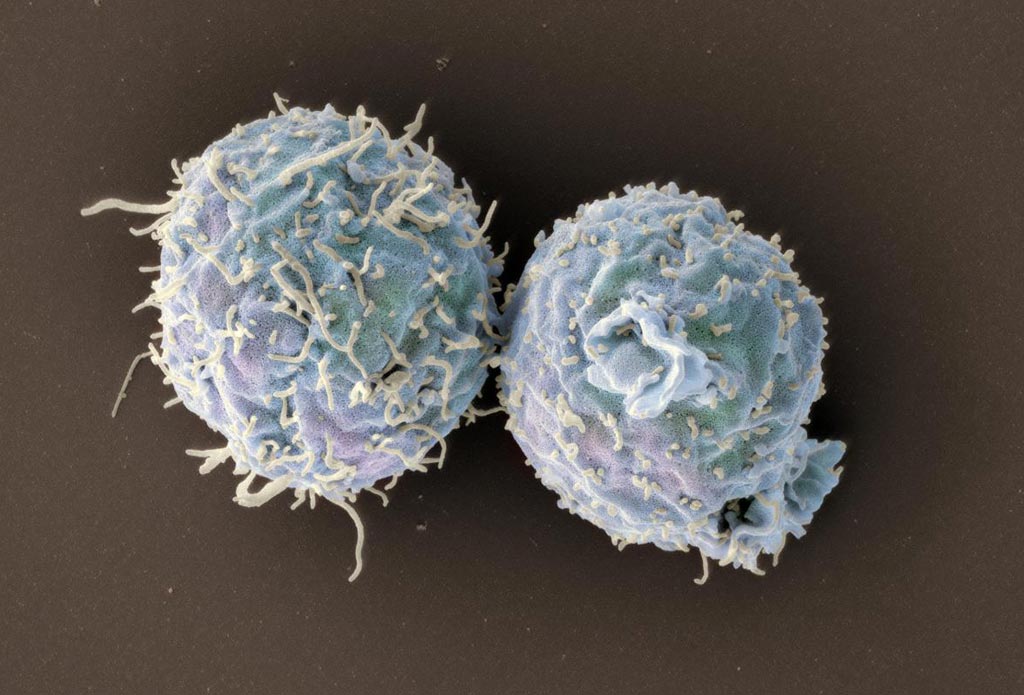Novel Method Prevents Rejection of Transplanted Organs
By LabMedica International staff writers
Posted on -
A team of Swiss researchers reported finding a method that prevents rejection of transplanted organs without lessening the immune system's ability to fight off infection by pathogenic microorganisms.Posted on -
The ability of the immune system to discriminate self from non-self is essential for eradicating microbial pathogens but is also responsible for rejection of transplants from a foreign donor. It is not known whether it is possible to selectively suppress this type of immune system rejection while maintaining a functional anti-pathogen defense.

Image: A scanning electron micrograph (SEM) of engineered T-cells lacking coronin 1 (Photo courtesy of the University of Basel).
In this regard, investigators at the University of Basel (Switzerland) have been looking for ways to prevent rejection while maintaining a potent antimicrobial defense system.
They reported in the January 15, 2019, online edition of the journal Immunity that mice deficient in the protein coronin 1, a regulator of naive T-cell homeostasis, fully retained foreign donor transplants while maintaining T-cell-specific responses against microbial pathogens. Coronin 1 is a member of the evolutionarily conserved coronin protein family, members of which are widely expressed across the eukaryotic kingdom. Mammals express seven coronin molecules, numbered from coronin 1 to 7. The different coronin proteins have a distinct tissue expression and have been reported to be involved in a wide array of cellular functions including calcium homeostasis, cytoskeletal dynamics, immune and inflammatory responses, neuromuscular transmission as well as cognition and behavior.
Mechanistically, coronin 1-deficiency was found to increase cyclic adenosine monophosphate (cAMP) concentrations to suppress these specific T-cell responses. Thus, elevated cAMP prevented rejection of foreign donor transplants. Furthermore, a prior transfer of coronin 1-deficient T-cells was sufficient to induce the anti-rejection response.
To maintain the immune system's antimicrobial defense, the investigators used co-stimulation on microbe-infected antigen presenting cells to overcome the cAMP-mediated immunosuppression and maintain anti-pathogen immunity.
"By removing coronin 1, we observed that the T-cells not only massively suppressed the immune response to the transplanted organ but even actively prevented its rejection," said first author Dr. Rajesh Jayachandran, a visiting scientist at the University of Basel. "At the same time, we were astonished that coronin 1-depleted T-cells continue to fight infections."
Related Links:
University of Basel











